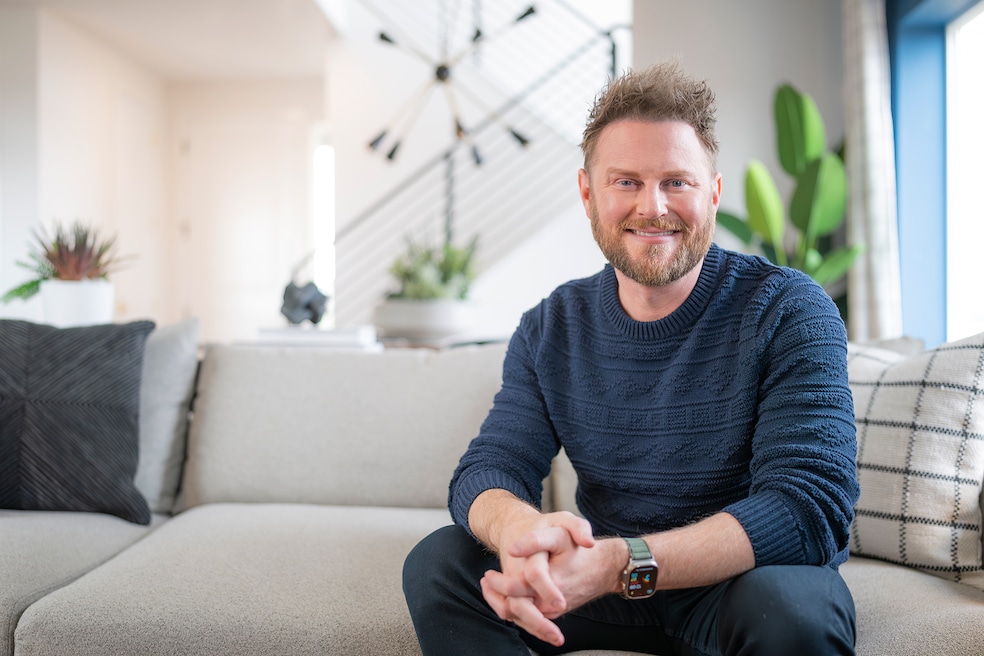On the first season of Netflix's "Queer Eye," where people undergo a life makeover based on advice from five experts, interior designer Bobby Berk asked 27-year-old Remington about his design style. The young bachelor inherited his grandmother's home and had made no changes — home design was not his forte.
In the episode, Berk asked about Remington's style icon and dream vacation spot: Don Draper from the AMC series "Mad Men," and Cuba. Berk then chose midcentury furniture and imagery of Havana for the house, including banana leaf wallpaper in the bathroom.
The reality show star recalls Remington saying, "I gave you nothing. You asked me about design, and I had no idea.” To which Berk responded, "I asked you about the things that made you happy, and that’s what I put in your home."
Berk’s affable approach to identifying home design preferences in unsure clients has found a place in Tri Pointe Homes’ strategy as the national homebuilder tries to meet demand for style and quick internet-driven consumer behavior.

Berk partnered with the Nevada-based builder to curate 10 collections aimed at offering consumers a similar experience to "Queer Eye." The TV personality chose details from cabinetry, tile, furniture and wall paint. Homebuyers can answer a style quiz — providing details such as their ideal vacation and favorite drink — to match with one of Berk’s designs or select a look to be put into their home.
Tri Pointe noted that the curated approach aided by Berk eases stress during the buying process.
“It’s an expectation in every aspect of your life, whether it’s shopping for shoes, shopping for meals, everything is click and go,” Jori Storm, director of brand marketing, said in an interview. “So why can’t we at Tri Pointe Homes make the homebuying experience a little bit more packaged to an extent and easier to avoid that decision paralysis?”
Most newly constructed homes feature neutral materials and a blank palette for owners to add their own flair, but Berk said consumers are drawn to character, seen in the rising interest in historic properties.

Model homes at Tri Pointe’s newest neighborhood, in the Painted Prairie development of Aurora, Colorado, feature two of Berk’s designs: Classic Mid-Century and Textural Neutral. Some popular results from the style quiz are Transitional Farmhouse, Organic Modern, Luxe Bohemian and Serene Scandinavian.
Classic Mid-Century includes dark wood cabinetry, a deep blue accent wall, light marble countertops and a thin blue tile kitchen backsplash. Textural Neutral uses brushed nickel finishes on the hardware and sink, with gray cabinets and a concrete-colored countertop with a waterfall edge.
The housing market remains challenging with high mortgage rates, rising home prices and low housing inventory. So, consumers tend to be in the market out of necessity, said Danielle Lipari-Marith, vice president of community experience for Tri Pointe in Denver. “They have a life change, their family is growing, or they’re relocating,” she said.

Reevaluating the buying process through a simplified approach is one driver behind the Tri Pointe and Berk partnership.
"There's so many decisions that need to be made, and the decisions about design should be the fun part, but often it's at the end, you're already stressed out from the other parts of it, you want it done," said Berk, who departed "Queer Eye" after its eighth season.
In greater Denver, Tri Pointe is targeting move-up buyers, with prices on the low end of the $500,000s, but Kelly Taga, a company division president, said that when ready to buy, renters are not necessarily purchasing a low-cost home.
“Some millennials that are coming off the sidelines, they’re finally ready to make the purchase, but they don’t want to purchase an entry-level house,” Taga said. “When they buy, they’ve saved their money, so now they want the house that they want.”
The area is ripe for growth, with construction happening for major job creators, added Taga, who said about 10,000 new jobs are anticipated. A large Amazon distribution center was purchased in late 2024, and a $600 million manufacturing plant for nicotine pouch company Zyn is underway.
